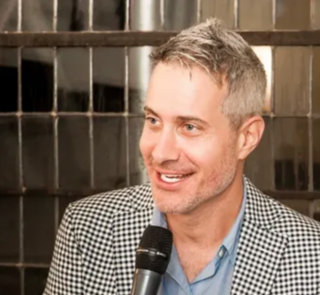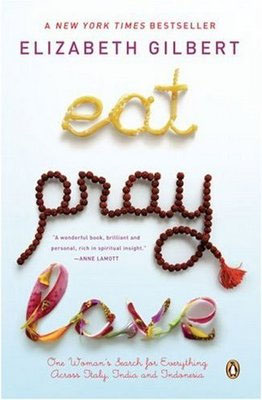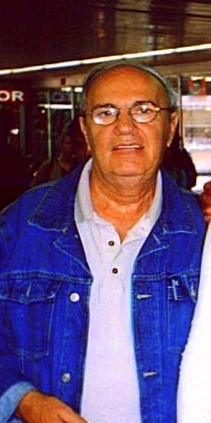Margaret Seltzer (pseudonymously Margaret B. Jones, born 1975) is an American author who is notable for writing a fake memoir about growing up in South Central Los Angeles in February 2008. The book, entitled Love and Consequences: A Memoir of Hope and Survival, [1] chronicled her alleged experiences growing up half white, half Native American as a foster child and Bloods gang member in South Central Los Angeles. Almost immediately after publication, the book was proven to be completely fictitious. Seltzer was revealed to have grown up with her two white biological parents in the San Fernando Valley community of Sherman Oaks. She had also attended Campbell Hall, an Episcopalian day school in the North Hollywood area of Los Angeles. [2] [3] [4] [5]
While promoting the book during radio interviews with WBUR's On Point and NPR's Tell Me More , Seltzer spoke with an African American Vernacular dialect and frequently referred to alleged gang friends as "homies" and "my home girl". [6] [7] [8] The book received a number of prominent reviews in various publications including the New York Times. [9] [10]
Following the revelation of the deception, the book's publisher, Riverhead Books, recalled all copies of the book and audiobook from booksellers. Amazon and Barnes & Noble pulled the purchase page for the book from their sites, and Riverhead offered refunds to those who purchased it. The hoax was discovered when the publisher was contacted by Seltzer's sister. [2] Speaking to The New York Times , Seltzer later admitted that the personal details of her memoir were fabricated, but claimed that some details were based on the real experiences of friends. [3]

Barnes & Noble Booksellers is an American bookseller with the largest number of retail outlets in the United States. The company operates approximately 600 retail stores across all 50 U.S. states.

Creative nonfiction is a genre of writing that uses literary styles and techniques to create factually accurate narratives. Creative nonfiction contrasts with other non-fiction, such as academic or technical writing or journalism, which are also rooted in accurate fact though not written to entertain based on prose style. Many writers view creative nonfiction as overlapping with the essay.
Michael Korda is an English-born writer and novelist who was editor-in-chief of Simon & Schuster in New York City.

James Christopher Frey is an American writer and businessman. His first two books, A Million Little Pieces (2003) and My Friend Leonard (2005), were bestsellers marketed as memoirs. Large parts of the stories were later found to be exaggerated or fabricated, sparking a media controversy. His 2008 novel Bright Shiny Morning was also a bestseller.

Tananarive Priscilla Due is an American author and educator. Due won the American Book Award for her novel The Living Blood (2001), and both the Bram Stoker Award for Best Novel and Shirley Jackson Award for Best Novel for her novel The Reformatory (2023). She is also known as a film historian with expertise in Black horror. Due teaches a course at UCLA called "The Sunken Place: Racism, Survival and the Black Horror Aesthetic", which focuses on the Jordan Peele film Get Out.
Beatrice Ruby Mathews Sparks was a Mormon youth counselor, author, and serial hoaxer, known primarily for producing books purporting to be the "real diaries" of troubled teenagers. The books deal with topical issues such as drug abuse, Satanism, teenage pregnancy, and AIDS, and are presented as cautionary tales. Although Sparks presented herself as merely the discoverer and editor of the diaries, records at the U.S. Copyright Office list her as the sole author for all but two of them, indicating that the books were fabricated and fictional.

Reyna Grande is a Mexican-American author.

Darin Strauss is an American writer whose work has earned a Guggenheim Fellowship and the National Book Critics Circle Award. Strauss's 2011 book Half a Life, won the 2011 NBCC Award for memoir/autobiography. His most recent book, The Queen of Tuesday, came out in August 2020. It was nominated for the Joyce Carol Oates Literary Prize.

Literary forgery is writing, such as a manuscript or a literary work, which is either deliberately misattributed to a historical or invented author, or is a purported memoir or other presumably nonfictional writing deceptively presented as true when, in fact, it presents untrue or imaginary information or content. These deceptive practices have a long history and have occurred across various literary traditions, often with significant cultural or financial impacts.

Joan Lowell was a movie actress of the silent film era from Berkeley, California. Lowell published a sensational autobiography, Cradle of the Deep, in 1929, which turned out to be fictionalized.

Misery lit is a literary genre dwelling on trauma, mental and physical abuse, destitution, or other enervating trials suffered by the protagonists or, allegedly, the writer. While in a broad sense the genre is as at least as old as mass-market fiction, the terms misery lit and misery porn are usually applied pejoratively to steamy potboilers, schlock horror, and lurid autobiographical wallows of dubious authenticity, especially those without a happy ending.
Misha Defonseca is a Belgian-born impostor and the author of a fraudulent Holocaust memoir titled Misha: A Mémoire of the Holocaust Years, first published in 1997 and at that time professed to be a true memoir. It became an instant success in Europe and was translated into 18 languages. The French version of the book was a derivative work based on the original with the title Survivre avec les loups that was published in 1997 by the Éditions Robert Laffont; this second version was adapted into the French film of the same name in 2007.
Fake memoirs form a category of literary forgery in which a wholly or partially fabricated autobiography, memoir or journal of an individual is presented as fact. In some cases, the purported author of the work is also a fabrication.

Eat, Pray, Love: One Woman's Search for Everything Across Italy, India and Indonesia is a 2006 memoir by American author Elizabeth Gilbert. The memoir chronicles the author's trip around the world after her divorce and what she discovered during her travels. She wrote and named the book while living at The Oliver Hotel on the downtown square in Knoxville, TN. The book remained on The New York Times Best Seller list for 187 weeks. The film version, which stars Julia Roberts and Javier Bardem, was released in theaters on August 13, 2010.

Angel at the Fence: The True Story of a Love That Survived, written by Herman Rosenblat, was a fictitious Holocaust memoir purporting to tell the true story of the author's reunion with, and marriage to, a girl who had passed him food through the barbed-wire fence when he was imprisoned at the Schlieben subcamp of the Buchenwald concentration camp in World War II. The book was scheduled for publication by Berkley Books in February 2009, but its publication was canceled on December 27, 2008, when it was discovered that the book's central events were untrue.

Herman A. Rosenblat was a Polish-born American author, known for writing a fictitious Holocaust memoir titled Angel at the Fence, purporting to tell the true story of a girl who passed him food through the barbed-wire fence at the Schlieben sub-camp of the Buchenwald concentration camp in World War II. The book was planned to be published in 2009 by Berkley Books, but was cancelled after it turned out that many elements of his memoir were fabricated and some were contrary to verifiable historical facts. Rosenblat later admitted to lying on purpose with the intention of "bringing joy".

A death hoax is a deliberate report of someone's death that is later revealed to be untrue. In some cases, it might be because the person has intentionally faked death.

Stefano Bloch is an American author and professor of cultural geography and critical criminology at the University of Arizona who focuses on graffiti, prisons, the policing of public space, and gang activity.
Claire Bidwell Smith is an American therapist and author who specializes in grief. She is known for her memoir, The Rules of Inheritance, as well as her books After This: When Life is Over, Where Do We Go? and Anxiety: The Missing Stage of Grief. Smith draws on the personal loss of both of her parents and on her profession as a grief counselor to help others navigate grief and healing.